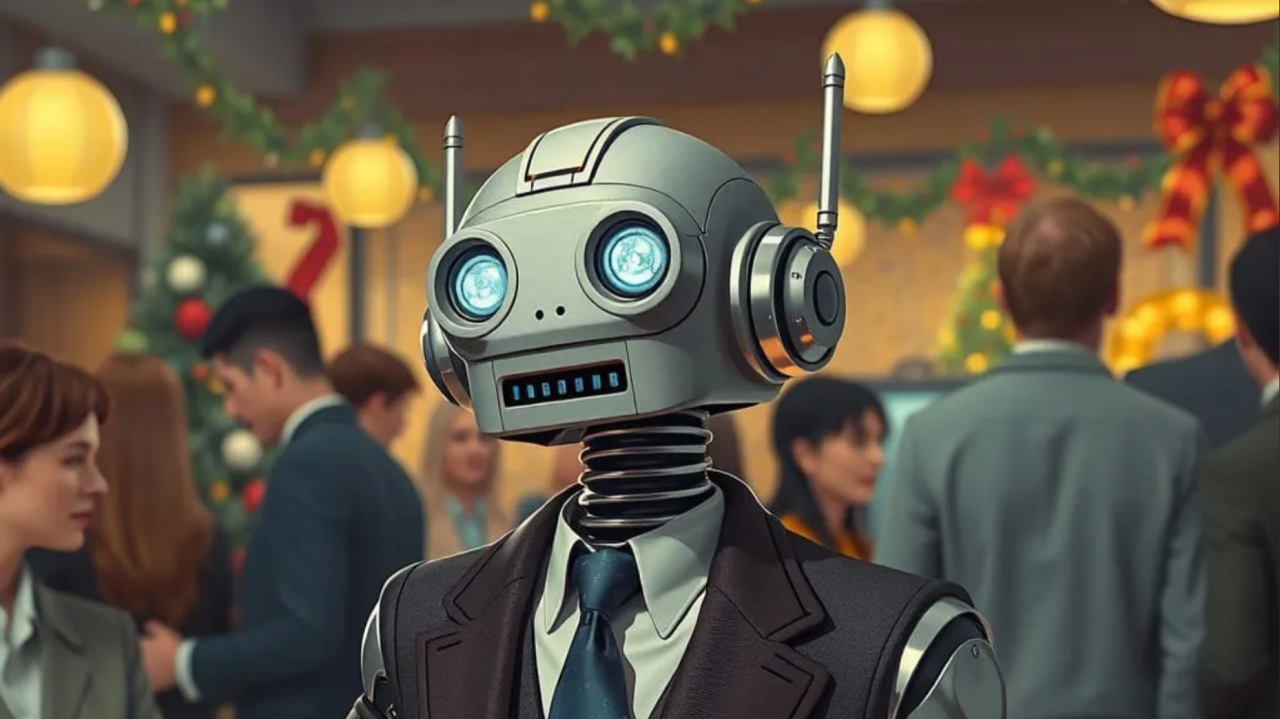
What the Future Holds
The future is always a moving target. Blink and suddenly the thing you thought was science fiction is sitting in your dock as a beta app. We used to joke about AI in the browser as some weird proof of concept, the kind of GitHub repo you share in a group chat with “lol imagine running this on Chrome.” And yet here we are, watching models get lighter, faster, and distributed like gossip through a schoolyard. Your browser tab isn’t just showing you the web anymore, it’s starting to think about it.
So what happens when the browser stops being a passive viewport and starts becoming an active participant? What happens when the internet’s front door learns how to talk back?
I think about it like the shift from silent films to talkies. At first, it feels awkward. The lip syncing is off. The scripts are clunky. But within a decade, sound isn’t the gimmick anymore, it’s the medium. That’s where browsers are headed. The idea that they just render documents will feel as quaint as a dial-up tone. They’re on their way to becoming homes for agents, collaborators, and synthetic colleagues.
And no, I don’t mean this in the breathless, “AI is going to eat everything tomorrow” way. I mean it in the slow, inevitable, creeping way that technology always moves. One day you’ll notice your browser saved you from opening twelve tabs because it went and fetched the answer itself. Another day, you’ll watch it coordinate a few micro-tasks between plugins like a miniature orchestra conductor. Then, one morning, you’ll realize your browser has become your operating system, not just your window into one.
The interesting part is not if this happens. It’s what that feels like for us.
Because a browser with an opinion changes the dynamic. Today you are the searcher, the navigator, the one who decides where to go. Tomorrow, your browser will start nudging. “I found three answers for you already, would you like me to summarize them?” It’s not quite free will, but it’s certainly a personality. And just like with people, those personalities will differ. Chrome might become the reliable, corporate colleague who double-checks everything. Firefox could lean into its rebel spirit and let you hack around with open models. Safari might give you fewer knobs but wrap them in velvet gloves. Browsers are about to rediscover their souls.
The big cultural shift is how this affects the way we relate to the web. Right now, the internet is still mostly pages. Even the apps we use in browsers are masquerading as documents. But when agents live inside that environment, we’ll stop thinking about “loading” things and start thinking about “asking” things. The grammar of the web changes. Instead of typing a URL like coordinates, you’ll start treating it like a request to a colleague. The user interface begins to feel like Slack or WhatsApp, where the main job isn’t clicking but conversing.
There’s also a wild card here: serendipity. We used to stumble across weird corners of the web by accident. That’s been optimized out of us by algorithms tuned to maximize engagement. But if the browser becomes smart enough, it could reintroduce controlled randomness. Not chaos, but surprise. Imagine your browser suggesting a paper from 1997 that just so happens to answer your niche research question. Or pulling in a fan wiki entry because it senses you’re after cultural context, not just raw facts. Serendipity could become a design feature again, rather than a bug of the pre-SEO internet.
From a technical side, the reasons this future feels inevitable are simple. Models are shrinking. WebAssembly is maturing. GPUs are becoming more accessible at the edge. Combine these trends and suddenly the idea of a language model sitting quietly in your tab isn’t far-fetched at all. It’s practical. The browser has always been sneaky like this. It quietly absorbed things that “didn’t belong” in it. First video players. Then 3D engines. Then entire productivity suites. AI is just the next squatter moving in and refusing to leave.
Of course, it won’t all be utopian. A browser with agency is also a browser with bias. Whose answers does it trust? Whose summaries does it prioritize? We’ve seen what happens when recommendation engines tilt culture, and now those same forces will be living not just on social feeds but in the very tool you use to access knowledge. That’s going to force us to rethink standards, trust, and transparency. It’s not just “does the browser render this site correctly,” but “does the browser represent reality fairly?” That’s a much scarier bar.
Still, the optimism here outweighs the fear for me. I think the next decade will feel less like us being drowned in a tidal wave of AI and more like us learning how to surf it. The browser will be the surfboard. Sometimes it will wobble. Sometimes it will nosedive. But once you get the balance, the ride is going to be exhilarating.
The question I keep coming back to is this: when we look back in twenty years, what will seem more absurd, that we once used browsers just to stare at static pages, or that we once trusted them not to think for themselves?
The future holds both irony and inevitability. Irony, because we spent decades designing browsers to be dumb, neutral, and obedient, and now we want them to become smart, subjective, and creative. Inevitability, because every step of web history has been about moving more of our tools into the same place. And once you’ve built a home for tools, it’s only a matter of time before you build a roommate with opinions.
What the future holds isn’t just smarter browsers. It’s stranger ones. And maybe that’s the best possible outcome. Because a little strangeness is what the internet has always needed most.